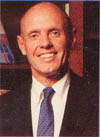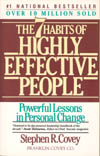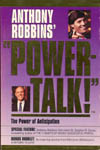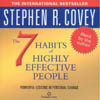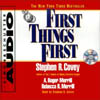
|
Dr. Stephen Covey at LYRATEK.COM"Be the change you want to see in the world."~ Mahatma Gandhi, 20th century Indian spiritual & political leader
|
|
-Home Page
-Site Map -Contact Page

Articles: -The Maldek Files -Recipe for Health -Political Evolution -Animal Whispering -E=mc2 Page -Philadelphia Experiment -Green Control -Monetary Reform

Resources: -Dr. Stephen Covey -Dr. Bruce Lipton -Powertalk Interviews -Flax Oil Secrets -The Future of Food -Archive Page -What the Bleep Do We Know at Lyratek.com?
Astronomy
-Cosmos -How the Universe Works
Science Fiction
-Sliders -Star Trek -The Matrix 
|

|
The Interdependent Nature of EconomyThe more I study independence, the more I've come to accept that it doesn't really exist in the "pure" way that I was pursuing it... not unless you're prepared to live like a self-sustaining hermit - no gas-guzzling car, no need of money, or companionship, building your own dwelling, foraging and/or farming and/or hunting for all your own food, making all your own clothes, etc. And even then, you will not have independence from nature and your environment. If you have a hint of ambition for something more than that, and most of us thankfully do, you will need to grow into something Dr. Covey calls interdependence. That basically means entering trade and co-operation with others so that all the needs & desires of yourself and the people you trade with are met. It's the expression of a healthy collective economy with the community you live in. (In fact, the very definition of a healthy economy is one in which people can freely trade with one another to the point where all their needs and desires are met. There is more to be said on that subject in our article on Monetary Reform.) Dr. Covey recommends a path of growth from dependence to independence to interdependence, which he outlines in his material. I would suggest never to get too hung up on achieving the independence phase, particularly in an economic context, because economics really is interdependence based. However, emotional independence is a different matter. This is very achievable, and I think, the very cornerstone of being able to successfully achieve healthy emotional interdependence. The most requested, most famous, most popular habit of Dr. Covey's is Habit 5: "Seek First to Understand, Then to be Understood". Covey has, in essense, cornered the market on this piece of wisdom, which may be seen as the greatest contribution he has personally made to the whole self-help and business success genres. However, he also emphasizes how important it is to exercise this habit in the context and sequence of the other six. On its own, Habit 5 is part of the "Personality Ethic", which Covey states has been guilty in the last 60 years of often times being manipulative in order to make up for certain shortcomings of character. Dr. Covey is far more interested in the idea of "Restoring the Character Ethic". The character ethic represents the kind of substantial qualities and emotional independence that one achieves from adopting and living the first three habits, also known as the Private Victory. From there can spring the Public Victory, which is the concern of Habits Four, Five and Six. And only by diligent work on the first four habits can the fifth habit also produce effective results and lead you to the sixth. Perhaps there really is no such thing as a private economic victory, and largely because economics is not a private concern. It is an expression of community. So pursue your economic success with a sense of community. Bring your private emotional victory, think win-win, and begin to listen empathically. The public victory will soon follow.
"Every man is rich in excuses to safeguard
his prejudices, his instincts, and his opinions."
Article written by Martin Izsak. Comments on this article are welcome. You may contact the author from this page:
|

|

|
LYRATEK.COM-The Fourth Density - evolution's progress in our lives
|

